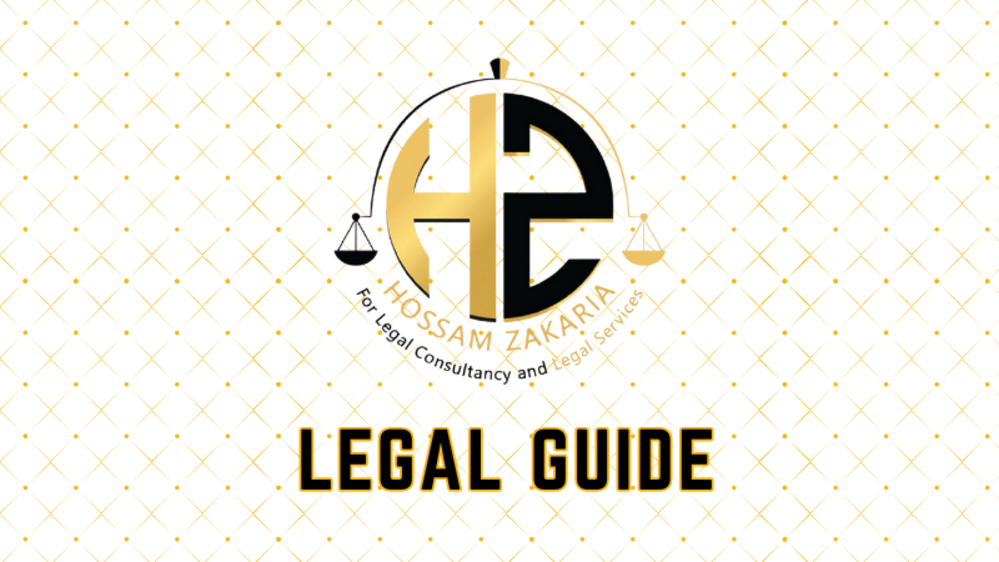Introduction: AI’s Transformative Role in UAE Business and Legal Landscape
The United Arab Emirates is rapidly advancing as a global hub for artificial intelligence (AI), driven by its leadership’s ambition and its dynamic legal environment. With AI at the forefront of technological change, UAE businesses are reimagining operations, customer engagement, and strategic development for the digital age. However, as AI adoption accelerates, organisations must also address the significant legal and regulatory changes that arise as new federal decrees, cabinet resolutions, and ministry guidelines come into effect—many as recent as 2025.
Understanding AI’s legal implications is no longer optional, but essential for every business operating in the UAE. This article provides legal professionals, executives, HR managers, and compliance officers with in-depth, consultancy-grade analysis on:
- The latest UAE regulations and federal decrees affecting AI and digital transformation;
- How AI is driving compliance demands and business innovation;
- Practical strategies for mitigating risks and ensuring legal conformity;
- Comparative insights between previous and new regulatory frameworks; and
- Actionable recommendations for navigating the evolving legal landscape in the UAE.
Whether you’re updating governance frameworks, developing AI-driven solutions, or reviewing internal policies, this advisory is grounded in verified sources, including the UAE Ministry of Justice, Federal Legal Gazette, and Ministry of Human Resources and Emiratisation, to ensure your organisation’s continued success in an era of unprecedented legal and technological transformation.
Table of Contents
- AI and UAE Law: 2025 Update
- Key Federal Decrees and Cabinet Resolutions Shaping AI Regulation
- AI-Driven Business Innovation Across UAE Sectors
- Legal Implications for Employment and Human Resources
- Compliance Strategies and Legal Risk Mitigation
- Comparing Old and New Regulations: A Legal Perspective
- Case Studies: Practical Business Applications and Lessons
- Forward Outlook: Proactive Best Practices for UAE Businesses
- Conclusion: Navigating the Future with Legal Confidence
AI and UAE Law: 2025 Update
Setting the Stage: AI Integration and Legal Infrastructure
AI’s ascent in the UAE is underpinned by a robust legal framework, positioning the country as a leader in smart government, digital city management, and technology-fueled economic growth. The UAE’s legal landscape is designed to both promote innovation and safeguard public interest, especially as AI systems are deployed in sensitive fields such as healthcare, finance, security, and employment.
In recent years, multiple federal instruments have laid down the legal framework for AI innovation, including:
- Federal Decree-Law No. 46 of 2021 on Electronic Transactions and Trust Services – fostering secure digital engagement;
- Cabinet Resolution No. 21 of 2023 on the Regulation of Artificial Intelligence Utilisation in Government – shaping public sector AI adoption; and
- Ministerial Guidelines (2024-2025) from MOHRE and UAE Central Bank – addressing sector-specific responsibilities (e.g., data, privacy, employment).
In 2025, anticipated updates driven by the UAE’s National AI Strategy and continuing implementation of the Digital Law further increase both the opportunities and obligations for companies.
Why the 2025 Regulatory Updates Matter
Greater legal clarity and more stringent compliance expectations are transforming the way businesses deploy AI. UAE law is establishing clear guidelines regarding data integrity, algorithmic transparency, employment rights, cybersecurity, and consumer protection—creating both challenges and a roadmap to responsible innovation.
Key Federal Decrees and Cabinet Resolutions Shaping AI Regulation
Federal Decree-Law No. 46 of 2021: Digital Transformation Backbone
Federal Decree-Law No. 46 of 2021 paved the way for secure digital transactions and recognised digital signatures, smart contracts, and electronic authentication as legally binding. This forms the bedrock upon which AI-driven platforms can interact with customers, employees, and government bodies securely and efficiently.
Cabinet Resolution No. 21 of 2023: AI Use in Government Services
This resolution is a landmark for the rollout of AI across public sector agencies, setting standards for risk management, algorithmic transparency, human oversight, and citizen rights. It mandates government bodies to:
- Conduct Data Protection Impact Assessments (DPIA) before launching AI-powered services;
- Maintain logs for all impactful AI-driven decisions;
- Establish grievance mechanisms for individuals affected by automated decisions; and
- Ensure human intervention is possible where rights or interests are at stake.
While aimed at government, these principles are shaping best practices for the private sector, especially in regulated industries.
Sector-Specific AI Regulations: Finance, Healthcare, and Employment
The UAE Central Bank’s recent circulars (2024–2025) require financial institutions to demonstrate AI transparency, safeguard customer data, and manage algorithmic bias. Similarly, the Ministry of Health has imposed AI audit requirements on medical technology firms, while MOHRE has updated guidance regarding the use of AI in recruitment and employment decisions, protecting employee rights against algorithmic discrimination.
AI-Driven Business Innovation Across UAE Sectors
Opportunities for Growth and Efficiency
Businesses across all UAE sectors—from retail and real estate to energy and logistics—are integrating AI into their core operations. The most prominent benefits include:
- Optimised supply chains through predictive analytics;
- AI-powered HR solutions for recruitment, employee development, and performance analysis;
- Enhanced customer engagement via natural language processing (NLP) chatbots;
- Faster processing of legal documents and contracts using AI-driven legal tech;
- Risk assessment and fraud detection in financial services.
However, effective use of AI demands a parallel strengthening of compliance programs, privacy safeguards, and internal controls to manage the associated legal risks.
Visual Suggestion: AI Adoption Across Sectors in UAE (Infographic Chart)
Suggested visual placement here for an infographic depicting the top five sectors utilising AI in 2025 (finance, government, healthcare, retail, logistics).
Legal Implications for Employment and Human Resources
AI in HR: Balancing Innovation with Rights
The use of AI in employee management—from recruitment to performance reviews—promises objectivity and efficiency, but also triggers significant legal scrutiny. The Ministry of Human Resources and Emiratisation (MOHRE) emphasises principles of fairness, transparency, and non-discrimination in all AI-driven processes.
Relevant Law: Ministerial Circular No. 15 of 2024 (MOHRE)
This circular mandates that any business using AI for candidate screening, performance assessments, or disciplinary actions must:
- Disclose the use of AI systems to employees and job applicants;
- Offer opportunities to contest or appeal decisions made by automated systems;
- Ensure human review for adverse employment decisions;
- Maintain records of algorithms and data sets used, available for MOHRE audit.
Hypothetical Example
ABC Technologies LLC uses an AI-powered tool to rank job applicants. A rejected applicant claims discrimination. Under MOHRE Circular 15 of 2024, ABC is required to provide transparency around the AI’s decision-making process and must offer an appeal reviewed by a human panel. Non-compliance could trigger investigation and penalties.
Design Suggestion: Flow Diagram – AI-Driven Recruitment Compliance Process
Insert flow diagram: Steps for ensuring legal compliance when implementing AI in recruitment (data input validation, AI audit, candidate notification, appeal process, MOHRE reporting).
Compliance Strategies and Legal Risk Mitigation
Understanding the Principal Legal Risks
- Data Privacy Breaches: AI relies on vast data, raising risks under Federal Decree-Law No. 45 of 2021 on Personal Data Protection (PDPL).
- Algorithmic Bias or Discrimination: Using non-representative data can lead to unfair outcomes, risking MOHRE or sectoral fines.
- Lack of Documentation: Organisations must maintain logs and audit trails under various federal requirements.
- Unlawful Automated Decisions: Certain adverse outcomes require human oversight to remain compliant.
Practical Compliance Checklist
| Compliance Requirement | Action Steps | Relevant Law/Guidance |
|---|---|---|
| Data Protection Impact Assessment (DPIA) | Conduct before AI deployment in HR, customer service, or decision-making | Cabinet Resolution No. 21/2023; PDPL |
| Employee Notification & Transparency | Inform all employees and applicants if AI is used in assessments or decisions | MOHRE Circular 15/2024 |
| Appeal Process | Offer a channel for contesting AI-driven adverse actions; human review required | MOHRE Circular 15/2024 |
| Audit Trail Maintenance | Log all AI decisions and provide access for audits by authorities | Federal Decree-Law No. 46/2021 |
| Algorithmic Fairness Assessments | Regular testing to avoid bias/discrimination in AI systems | MOHRE, Central Bank Guidelines |
Suggested Visual: UAE AI Compliance Checklist (Downloadable PDF)
Option to add downloadable compliance checklist or process overview for legal teams and HR managers.
Comparing Old and New Regulations: A Legal Perspective
The Shift Toward Proactivity and Stringency
The legal environment in the UAE has shifted from largely aspirational encouragement of digital innovation to enforceable, risk-based regulation of AI technologies. This evolution is evident in the transition from earlier frameworks to the detailed obligations embedded in recent laws and circulars.
| Area | Previous Approach (Pre-2021) | Current Approach (2021-2025) |
|---|---|---|
| AI Governance | General best-practice recommendations; voluntary codes | Enforceable rules via Cabinet Resolutions and Decrees |
| Transparency | No specific requirements for AI explainability | Mandated transparency/auditability for key AI decisions |
| Data Protection | Sparse sectoral provisions; limited obligations | Federal Decree-Law No. 45/2021 (PDPL) establishes universal data privacy rights |
| Employment Impact | Limited guidance on AI use in HR processes | MOHRE Circulars require non-discrimination, appeals, and human review |
| Penalties | Few defined sanctions for non-compliance | Clear penalties and escalation for breaches (see table below) |
Visual Suggestion: Penalty Comparison Chart
| Infraction Type | Penalty Pre-2021 | Penalty Post-2021 |
|---|---|---|
| Failure to notify employees on AI use | Not defined | Administrative fines up to AED 500,000 (MOHRE Circulars) |
| Data breach involving AI system | Ministerial warnings | Fines up to AED 2M; potential criminal liability (PDPL) |
| Algorithmic bias/discrimination proven | Informal remediation | Investigation and sanctions (MOHRE; sectoral regulators) |
Case Studies: Practical Business Applications and Lessons
Case Study 1: AI-Powered Recruitment in Retail
Background: A leading UAE retailer automates applicant screening. The AI’s data set, however, skews against certain age groups, prompting a complaint.
Legal Issues Identified: Non-disclosure of AI use, lack of fairness auditing, absence of an appeal process—breaching MOHRE Circular No. 15 of 2024.
Outcome: Company must disclose AI criteria, allow candidates to contest, and conduct a fairness review. Non-compliance risks fines and reputational harm.
Case Study 2: Automated Loan Decisions in Financial Services
Background: An Emirati bank uses AI for lending decisions, but a regulatory audit finds opaque scoring methods and inconsistent explanations to customers.
Legal Response: Under Central Bank AI directives, the bank is required to enhance algorithm explainability, update documentation, and compensate affected customers.
Lesson: Regular AI audits and customer transparency are now mandatory, failing which material regulatory penalties can be imposed.
Case Study 3: Healthcare Diagnostics and Patient Consent
Background: A healthtech firm launches an AI-based diagnostic tool without explicit patient consent for AI-enabled decision-making.
Legal Analysis: breaches Federal Decree-Law No. 45 of 2021 (data privacy) and UAE healthcare sector AI guidance on informed consent.
Consequence: Immediate suspension pending remedial action and formal warning from the Ministry of Health.
Forward Outlook: Proactive Best Practices for UAE Businesses
Steps Toward Sustainable AI Adoption and Legal Resilience
- Regular Legal Review: Assign legal counsel to continuously monitor updates from the Federal Legal Gazette, MOJ, MOHRE, and sectoral regulators.
- Internal Training: Develop regular training sessions for managers and technical teams on AI-related legal obligations and ethical standards.
- Policy Updates: Regularly revise internal HR and data governance policies to ensure compliance with evolving laws.
- Cross-Functional Compliance Teams: Create multidisciplinary taskforces including HR, IT, legal, and operations to oversee AI deployments.
- Proactive Regulator Engagement: Reach out to relevant ministries for interpretive guidance or clarification where legal obligations are unclear.
Preparing for 2025 and Beyond
The growing focus on digital resilience, cyber readiness, and ethical innovation means compliance is as much about long-term strategy as short-term legal risk avoidance. The next phase of UAE’s National AI Strategy will expand these obligations, making legal alignment a driver of trust, competitiveness, and sustainable growth.
Conclusion: Navigating the Future with Legal Confidence
As AI continues to revolutionise operational paradigms, customer interactions, and strategic decision-making in the UAE, the legal landscape is also evolving with unprecedented speed and sophistication. Attorneys, HR leaders, and executives must react proactively—not only to remain compliant, but also to seize the opportunities arising from AI’s transformative power.
Key takeaways for UAE businesses:
- The legal environment is rapidly transitioning toward enforceable, transparent, and risk-based AI rules;
- Compliance is not a one-off activity but an ongoing process, requiring regular updates, audits, and internal training;
- The penalties for non-compliance have sharpened, heightening both regulatory and reputational stakes;
- Organisational success depends on collaboration across legal, HR, IT, and executive leadership; and
- Staying ahead requires a commitment to both best-practice compliance and the ethical stewardship of AI capabilities.
By embracing a multidisciplinary and forward-looking approach, UAE businesses can innovate with confidence, remain resilient to legal challenges, and uphold the nation’s reputation as a paragon of responsible digital advancement.



